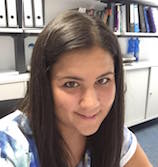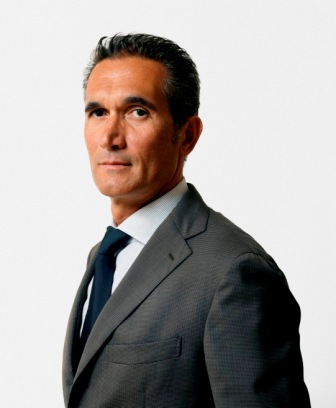Studying at the University of Verona
Here you can find information on the organisational aspects of the Programme, lecture timetables, learning activities and useful contact details for your time at the University, from enrolment to graduation.
Academic calendar
The academic calendar shows the deadlines and scheduled events that are relevant to students, teaching and technical-administrative staff of the University. Public holidays and University closures are also indicated. The academic year normally begins on 1 October each year and ends on 30 September of the following year.
Course calendar
The Academic Calendar sets out the degree programme lecture and exam timetables, as well as the relevant university closure dates..
| Period | From | To |
|---|---|---|
| primo semestre | Sep 14, 2015 | Jan 8, 2016 |
| secondo semestre triennali | Feb 15, 2016 | Jun 1, 2016 |
| Session | From | To |
|---|---|---|
| appelli sessione invernale | Jan 11, 2016 | Feb 13, 2016 |
| prove intermedie secondo semestre | Apr 11, 2016 | Apr 15, 2016 |
| appelli sessione estiva | Jun 6, 2016 | Jul 9, 2016 |
| Appelli sessione autunnale | Aug 29, 2016 | Sep 16, 2016 |
| prove intermedie primo semestre | Nov 2, 2016 | Nov 6, 2016 |
| Session | From | To |
|---|---|---|
| sessione autunnale | Dec 11, 2015 | Dec 18, 2015 |
| sessione invernale | Apr 6, 2016 | Apr 8, 2016 |
| sessione estiva | Sep 13, 2016 | Sep 14, 2016 |
| Period | From | To |
|---|---|---|
| vacanze natalizie | Dec 23, 2015 | Jan 5, 2016 |
| vacanze pasquali | Mar 25, 2016 | Mar 29, 2016 |
| vacanze estive | Aug 8, 2016 | Aug 27, 2016 |
Exam calendar
Exam dates and rounds are managed by the relevant Economics Teaching and Student Services Unit.
To view all the exam sessions available, please use the Exam dashboard on ESSE3.
If you forgot your login details or have problems logging in, please contact the relevant IT HelpDesk, or check the login details recovery web page.
Academic staff
 silvano.corbella@univr.it
silvano.corbella@univr.it
 martina.menon@univr.it
martina.menon@univr.it
Mussini Mauro
 mauro.mussini@univr.it
mauro.mussini@univr.it
 maurizio.pizzamiglio@univr.it
maurizio.pizzamiglio@univr.it
Study Plan
The Study Plan includes all modules, teaching and learning activities that each student will need to undertake during their time at the University.
Please select your Study Plan based on your enrollment year.
1° Year
| Modules | Credits | TAF | SSD |
|---|
2° Year activated in the A.Y. 2016/2017
| Modules | Credits | TAF | SSD |
|---|
3° Year activated in the A.Y. 2017/2018
| Modules | Credits | TAF | SSD |
|---|
| Modules | Credits | TAF | SSD |
|---|
| Modules | Credits | TAF | SSD |
|---|
| Modules | Credits | TAF | SSD |
|---|
| Modules | Credits | TAF | SSD |
|---|
Legend | Type of training activity (TTA)
TAF (Type of Educational Activity) All courses and activities are classified into different types of educational activities, indicated by a letter.
Economic Policy (2017/2018)
Teaching code
4S00265
Academic staff
Coordinator
Credits
9
Language
Italian
Scientific Disciplinary Sector (SSD)
SECS-P/02 - ECONOMIC POLICY
Period
Secondo Semestre Triennali dal Feb 19, 2018 al Jun 1, 2018.
Learning outcomes
Students are introduced to the theory of welfare economics that is the core of the political economy and the rudiments of the theory of general economic equilibrium. The study material is proposed in a rigorous and analytical fashion with the students' involvement in exercise activities favoring a non-mnemonic learning by doing process.
Students are introduced to the economic theory of well-being, which offers the logical basis of economic policy, and the rudiments of the theory of general economic equilibrium. This study material enables students to experience the role of decision maker and to value the impact of public policies on miniature economies and to play an active role in designing, debating and implementing economic policies.
The study material is proposed in a rigorous and analytical fashion with the students' involvement in exercise activities favouring a non-mnemonic learning by doing process while promoting participation in the public debate in the classroom and on the discussion forum titled "The Young Political Observer " devoted to relevant and actual political economic issues.
At the end of the learning process the student will have to demonstrate that he has acquired in-depth applied knowledge and understanding skills useful for solving important economic and social problems, solid judgment autonomy, high communication skills, and excellent learning skills in order to apply such knowledge to any collective environment whether it be a party, a board of directors, an association or a family, and to be a citizen who can actively, critically and proactively participate in the new forms of participatory democracy and lead public debates argumenting in an authoritative and informed manner.
Program
The course is organized in two modules. The topics developed in the first module examine the equity and efficiency aspects of markets under competitive conditions and in presence of failures under a liberist point of view. These notions are used in the second module devoted to economic policies regarding aspects such as market liberalization, lobbying in political institutions, the labor market reform, access to education and merit, fiscal pressure and management of public expenditure, market regulations and the provision of welfare at the local level.
More details can be found on the dedicated e-learning site.
| Author | Title | Publishing house | Year | ISBN | Notes |
|---|---|---|---|---|---|
| Nicola Acocella | Economia del Benessere. La Logica della Politica Economica. | Carocci Editore | 2007 | ||
| Moore James | General Equilibrium and Welfare Economics An Introduction | Springer | 2007 | ||
| MAGNANI R. - PERALI F. | Laboratorio di Politica Economica - Benessere e Equilibrio Generale | Tipografia La Rapida - Verona | 2016 | ||
| Nicola Acocella | Le Politiche Microeconomiche | Carocci Editore | 2003 | ||
| Allan Feldman, Roberto Serrano | Welfare Economics And Social Choice Theory, 2nd edition | Springer | 2009 |
Examination Methods
50% Written examination, 20% class and policy forum "The Young Political Observer" participation and 30% exercises.
Students who receive a rating of less than 21 will have to pass an oral supplementary test.
Objectives of the assessment tests
The written test is intended to ascertain the knowledge of the topics presented in class and the ability to apply the logical schemes to the proposed topics.
The eventual supplementary oral examination consists of an interview aimed at developing the topics treated in the context of the written assessment and at verifying the completeness and depth of the preparation.
Participation in the classroom and in the discussion forum is verified through the active presence of the student both in class and on the dedicated forum, the propensity to debate and the quality of the argument with particular regard to the scientific readings proposed during the course. The e-learning website clearly document both forum interventions and student readings.
The analytical capacity is verified through the exercises at home both in pencil and using the Gams language in order to verify the correctness of the pencil exercises and to refine the interpretative capacity of the simulations of welfare economics and political economy carried out. The approach is like "learning by doing".
Content and method of carrying out the assessment tests
The written test potentially covers all the topics in the program delivered to the student at the opening of the course and can be consulted on the dedicated e-learning site.
The written exam is divided into groups of questions related to the main topics of the course and the exercises conducted during the lessons.
Each group of questions is associated with a score proportional to the estimated time to be spent doing the exercise or answering all questions over the two hours limit.
The supplementary oral test covers the whole program.
The final evaluation is expressed in thirty units.
Non attending and ERASMUS students are requested to contact the teacher at the beginning of the course to agree on the test verification procedures.
Type D and Type F activities
Modules not yet included
Career prospects
Module/Programme news
News for students
There you will find information, resources and services useful during your time at the University (Student’s exam record, your study plan on ESSE3, Distance Learning courses, university email account, office forms, administrative procedures, etc.). You can log into MyUnivr with your GIA login details: only in this way will you be able to receive notification of all the notices from your teachers and your secretariat via email and soon also via the Univr app.
Graduation
List of theses and work experience proposals
| theses proposals | Research area |
|---|---|
| Tesi di laurea - Il credit scoring | Statistics - Foundational and philosophical topics |
| La performance delle imprese che adottano politiche di Corporate Social responsibility | Various topics |
| La previsione della qualita' dei vini: Il caso dell'Amarone | Various topics |
| Proposte di tesi | Various topics |
| Tesi in Macroeconomia | Various topics |
| tesi triennali | Various topics |

 045 802 8495 (VR) -- 0444/393938 (VI)
045 802 8495 (VR) -- 0444/393938 (VI)























